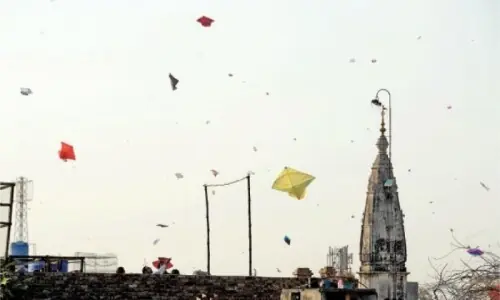PESHAWAR, March 20: Forty-two Uzbeks militants and 16 tribespeople were killed in two days of fierce clashes in the volatile South Waziristan tribal region, government and security officials told Dawn.
They said another 27 Uzbek militants had been captured by tribal militant commander Maulvi Nazir.
There was no independent confirmation of the death toll on both sides but information gathered from three different government security sources corroborate reports emerging from the restive region that the tribespeople who had once whole-heartedly welcomed foreign militants were now on a hunting spree for them.
Officials said announcements were made from mosques on loudspeakers in some villages in Wana, regional headquarters of South Waziristan, exhorting local tribespeople to stand up and wage a “jihad” against Uzbeks.
One official said Tojikhel, a sub-clan of the dominant Ahmadzai Wazir tribe in Wana tribal region, had asked its people to hunt down Uzbeks wherever they were found.
The exact number of militants from the central Asian republic associated with the Islamic Movement of Uzbekistan led by Tahir Yaldashev in Wana is not known but intelligence estimates vary from eight hundred to little over one thousand.
A security official said Mr Yaldashev had gone into hiding and had not been seen since the first flare between local tribespeople and Uzbek militants early this month that had left at least 17 Uzbeks dead.
Officials said among the 16 tribespeople killed in two days of fighting were four students whose bus was caught in a cross-fire on Monday.
The sources said 12 seriously wounded tribespeople – two women, two girls and eight students – were evacuated by helicopter from Wana for proper medical treatment.
The number of wounded has been put at more than a hundred with most being treated at a local hospital in Wana.
A senior security official told Dawn that militant commander Maulavi Nazir had given Uzbeks until Wednesday morning “to surrender, leave or prepare for action.”
The government, it appears, has chosen to take a back seat and allow tribal dynamics to play out to deal with the situation, fearing that any intervention to side with tribespeople or militants supporting the action against foreign militants could discredit the whole campaign.
“Let the tribespeople deal with the situation. That’s the best way to deal with the problem. There is a groundswell of support for action against Uzbeks and any attempt by the government to intervene in support of the tribal action would actually discredit it. There is tribal sensitivity involved here,” the official said.
The latest flare-up, the second this month, occurred after the killing of an Al Qaeda-linked Arab identified as Saiful Adil last week. His body was found abandoned in the outskirts of Wana.
Maulavi Nazir, a top pro-Taliban militant commander in Wana region, suspected Uzbeks for their involvement in the murder.
The security official said a foreign militant and his tribal escort carrying blood money to the widow of Saiful Adil were also attacked on their way which added fuel to the fire.
Maulvai Nazir had strained relations with Uzbek militants due to their alleged involvement in local crimes, decided to take them on, banking largely on popular support for his action, government and security officials said.
The officials said militant commanders were now clearly divided over the issue with some supporting the Uzbeks.
At least three of those supporting the Uzbeks had signed peace agreement with the government in November, 2004, including Maulavi Abbas, and were siding with foreign militants, the officials said.
The sources said Siraj Haqqani, the son of a veteran Afghan mujahid and Taliban leader, Jalaluddin Haqqani, and his aide, Bakhta Jan, had reached Wana to intervene and persuade the combatants to stop fighting and settle the issue through dialogue.
But one official said the afternoon talks between senior Taliban figures and Maulavi Nazir and his tribal supporters had failed and another round was expected sometimes late Tuesday evening.
Hand-picked, Nazir owes his own position to the Haqqanis, who wield tremendous influence and power over militant commanders in the restive North and South Waziristan tribal regions.
Officials said the fighting was mostly concentrated in Zha Ghundai, Azam Warsak and Kaloosha areas of Wana region. “There is sporadic gunfire”, one official said.
One report indicated that militants from banned jihadist outfits, who had also taken sanctuary in Wana, had also joined the tribespeople and blocked the Wana-Azam-Warsak road and checking vehicles for Uzbek militants.
“What essentially was a fight between a pro-government tribal elder and Uzbek militants has now turned into a larger fight, bringing in the likes of Maulavi Nazir. We were waiting for this to happen with bated breathes and thank God it has happened. Those who were too weak but wanted to take on the Uzbeks now feel emboldened. We were anticipating this for a long time and now it unfolding before our eyes”, commented a government official.

































